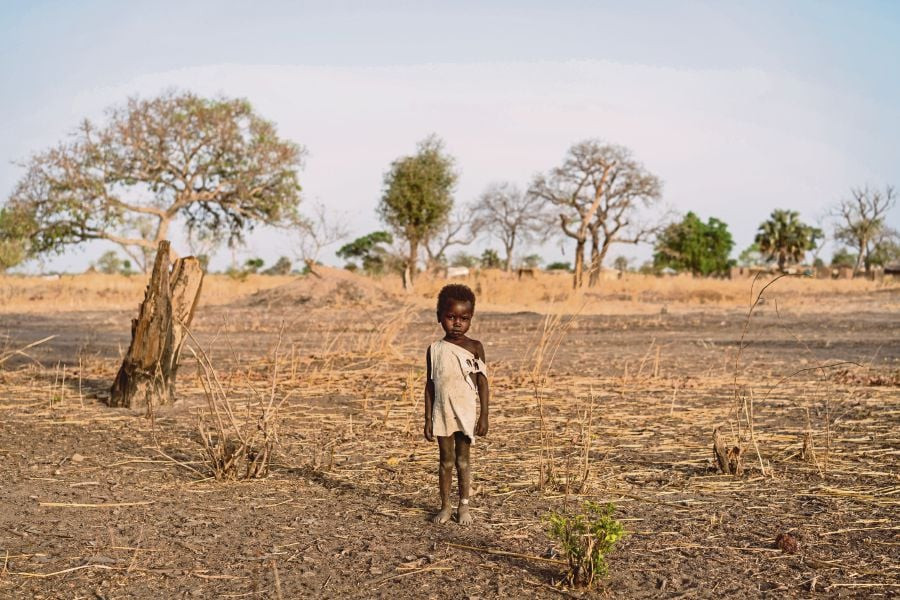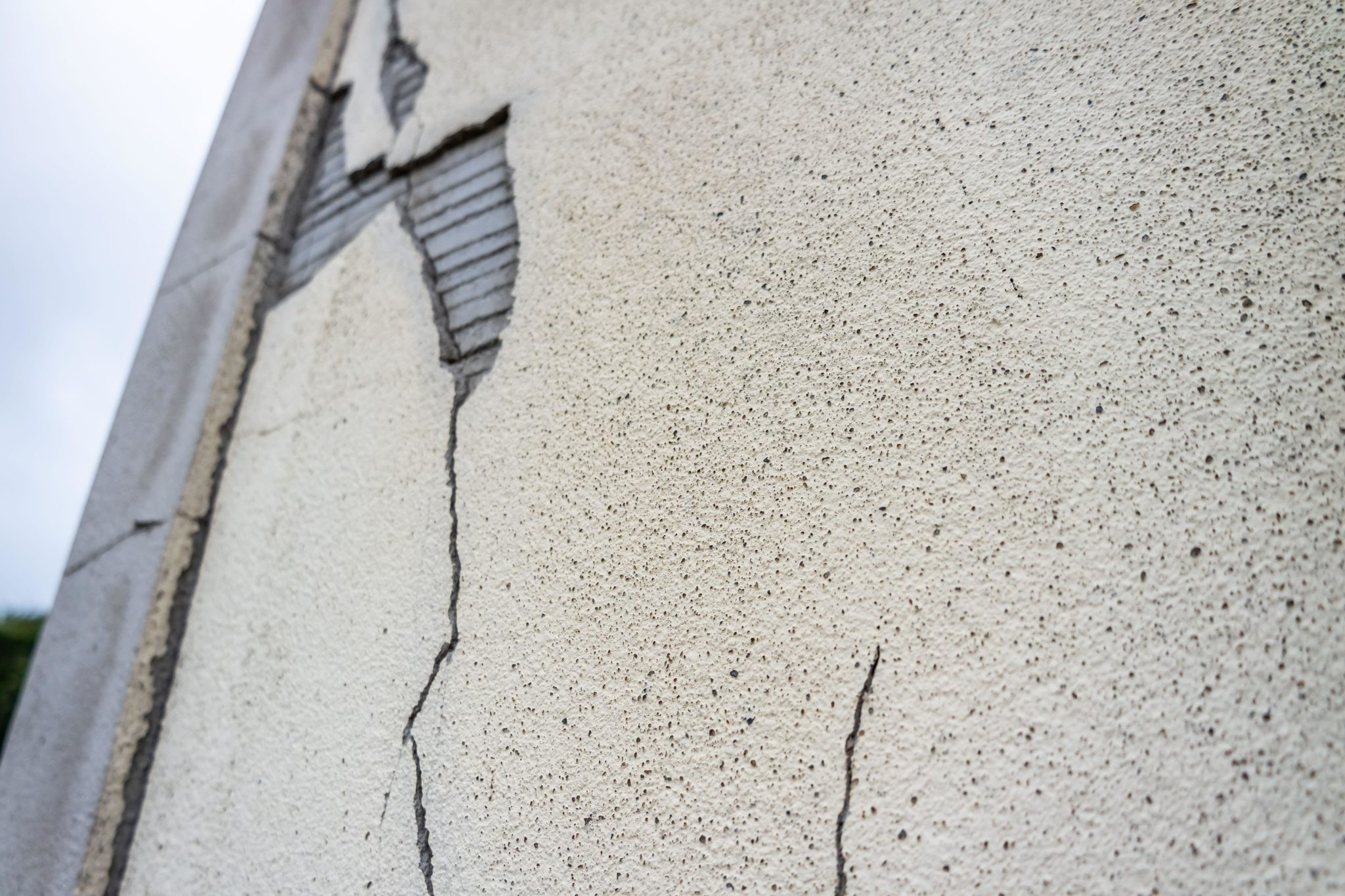On April 15, 2023, war erupted in Sudan’s capital, Khartoum, triggering the biggest displacement crisis in the world. As the world’s focus is consumed by other wars, Sudan—nearing total collapse on all fronts—is pleading for attention.
The conflict between the Sudanese army and a paramilitary group known as the Rapid Support Forces (RSF) has engulfed the nation. No end is in sight. Fighting appears to be only escalating across all eighteen of Sudan’s states. Its capital, Khartoum, is almost entirely in ruins. The RSF seizure of the city of Wad Madani, a critical supply hub, has suffocated the little external aid civilians were receiving. Health-care systems have collapsed, attacks on women and girls are rampant, and famine is setting in. UN officials have warned that more than two million Sudanese are at risk of death by starvation this fall.
“The most likely trajectory [PDF] forward is towards famine, fighting that takes on increasingly ethnic and regional aspects, and the possibility of a failed state of 50 million people on the strategic eastern gateway to the Sahel,” Tom Perriello, the U.S. envoy to Sudan, told Congress in May. Sudan is plunging into the worst famine the world has seen in at least forty years.
Despite these warnings, many observers are calling Sudan the world’s “forgotten war.” As the humanitarian situation deteriorates, sorely needed aid is not arriving, signaling a historic failure in the global aid system.
“There is no time to lose,” emphasized Clementine Nkweta-Salami, the United Nations’ humanitarian coordinator based in Port Sudan.
Civilian life in Africa’s third-largest country has been completely interrupted by the war, with many essential services becoming a target of both sides, though predominantly the RSF. Houses are being torched, looted, and shelled, driving millions from their homes. Many people have been displaced more than once. Several experts and Sudanese aid workers have said that they think the true total displacement is much higher than the latest official toll of more than ten million.
The country’s hospitals have come under fierce attack, rendering at least 80 percent of health facilities unusable. Fifteen million people are going without critical health care. Both governments and human rights observers have accused combatants on both sides of war crimes for deliberate strikes on civilian infrastructure and other forms of malicious violence.
The lack of clean water and deteriorating sanitation combines with the downed health system to create a “perfect storm” of disease, the World Health Organization (WHO) office in Sudan has said. Reports indicate that malaria, cholera, measles, dengue, and more are spreading like wildfire. Meanwhile, thousands of Sudan’s patients whose conditions are life threatening when untreated, such as HIV and tuberculosis, have seen their care disrupted.
The United Nations has documented an “alarming” rise in sexual assault and rape on the part of the largely male combatants, the vast majority of them RSF. Many asylum seekers have reported experiencing or witnessing abduction, assault, rape, or other forms of gender-based violence. The Sudan war “is actually a war on women,” the Cooperative for Assistance and Relief Everywhere (CARE) International’s Chief Humanitarian Officer Deepmala Mahla tells CFR.
The violence has also increasingly followed ethnic lines. The Masalit tribe has been a major target of retaliatory violence from largely Arab rival groups such as the RSF and government-allied militias, which have waged a campaign of murder and torture to drive approximately 540,000 Masalit from their homes in the El Geneina region.
The war is also compounding an ongoing and largely man-made famine. Conflict-related disruption of the harvest season, combined with the effects of climate change and the weaponization of food aid by the warring parties has led experts to raise alarms that 2.5 million could die in the country from starvation alone by the end of the summer. The official UN tally of those facing starvation is currently at least 750,000, and another 26.5 million are food insecure, hurtling toward mass famine. In just one displaced persons camp in El Fasher, for example, Doctors Without Borders estimates that thirteen children are dying every day from malnutrition.
Already, 25.6 million people—half of Sudan’s population—are facing a food crisis. Of those, 8.5 million are considered acutely malnourished, and 755,000 are in what aid agencies label a catastrophe, or condition of famine.
Sudan has long been one of East Africa’s biggest agricultural producers. But breadbasket lands have now become battlefields. One refugee transiting major agricultural areas told CFR he saw abandoned farms, machinery paused mid-operation, harvests rotted.
Aid workers say conditions at the camps are dire, and shelter is often hardly more than the loose tarps that function as makeshift tents. Mahla told CFR that many people are only getting one meal a day at refugee camps, often consisting of basic grains or legumes, which lack adequate macronutrients. The Sudanese government has denied that refugee camps are experiencing famine.
“We urgently need food, clean water, good shelter, and medical care,” a displaced mother of five at a camp in Darfur told humanitarian workers. “We are afraid we might lose our children.”
Global humanitarian groups are struggling to get aid where it is needed. Humanitarian analysis nonprofit ACAPS rates constraints on humanitarian access in Sudan as topping the highest extremes.
One refugee related that a recent trip from Kassala to Port Sudan, a journey of roughly 350 miles, had twenty-two checkpoints, making the movement of supplies stiflingly slow. Trips that would normally take a few hours now often sprawl into several days.
The World Food Program (WFP) said that it has provided assistance to at least 6.7 million people in the war, but its trucks have also been barred from travel, hijacked, and looted by armed groups. In August, WFP launched an investigation into some of its staffers who stand accused of fraud and concealing the role of Sudan’s army in blocking aid deliveries.
Many of the aid workers have become displaced themselves. “We received a number of reports of humanitarian staff who were killed, shot, or injured,” said Emily Beggins, a senior humanitarian officer at U.S. Agency for International Development (USAID). “There was little to do to console our partners regarding the agonizing decisions they were needing to make: to suspend operations, to move their own staff to safety without many assurances.”
In August 2024, the Sudanese government reopened a critical aid channel along the border with Chad that has been down for the last six months—but aid has so far still barely trickled in, and experts say the army is using its control over aid checkpoints as leverage.
Among the few aid groups still active in the country are CARE and the International Rescue Committee (IRC), both offering safe water and other basic health assistance.
This aid, though, pales in comparison to what is needed. The “international community has failed Sudan,” the IRC says. The UN funding goal of $2.7 billion for 2024 has only been 48 percent met.
The funding shortfalls have left Sudanese feeling ignored. WHO Director-General Tedros Adhanom Ghebreyesus has called out the world’s “really low” attention on the issue, in large part due to race, he says.
Other experts, too, point to Western countries’ perceived lack of geopolitical interests in this war. “Not only are African populations keenly aware of the time, resources, and high-level attention directed at crises in Gaza and Ukraine, they are aware of the disparity between that level of effort and concern and the much quieter attempts to address the world’s biggest humanitarian crisis, which is in Sudan,” CFR expert Michelle Gavin says. “This becomes part of a broader narrative about disregard and disrespect.”
It’s not just Sudan. The world is seeing the worst funding gap that the humanitarian system has faced, even as the need is greater than ever. Between 2016 and 2022, the United Nations’ appeals were on average 58 percent funded.
Conflict is by far the biggest factor, with war on the rise, and lasting longer on average worldwide. On top of that are the worsening effects of the climate crisis. Droughts are consuming the Horn of Africa and the Sahel, floods plague Pakistan, South Sudan, and Libya, and agriculture strains drive resource conflict in Nigeria.
Greater damage to infrastructure in these conflicts requires lengthier, more expensive aid responses. In 1999, aid agencies estimated the humanitarian aid system needed $1.7 billion annually; by 2027, some aid forecasters project that it could require more than $100 billion. However, last year, the global amount committed to the United Nations for relief work dropped for the first time since the organization’s 1945 founding.
Many of the major aid organizations say the most critical priority is to boost this funding. Local support goes even further. Today, just 3 percent of aid worldwide goes to national and local nonprofits, even though they are often more effective than their international counterparts.
One Sudanese aid worker mentioned collecting $1,000 dollars a week at a local food kitchen before the war broke out—now he’s lucky if he gets $50, he says. Sudanese communities working to feed the displaced and provide stopgap health care have proven remarkably resilient despite the violence they face, but their efforts can only go so far without more support. The starkest issue that local groups face, CFR’s Gavin says, is securing this crucial funding.
Meanwhile, the crisis in Sudan is also highlighting a growing problem with the erosion of international humanitarian norms, Gavin continues. International law bans the use of famine as a weapon of war. Yet this practice and other war crimes, according to rights watchdogs, are being committed against the Sudanese people with impunity. Failure by the standard bearers of such laws, such as the UN Security Council, to hold the abusers accountable will likely further erode trust in the multilateral systems responsible for delivering aid.
Meanwhile, in Sudan, the world does not have much time to avert a total collapse, experts say, but the other countries seem unwilling to intervene in the horrors transpiring. “There is this, quite frankly, quite tired and racist idea that Sudan and Africa in general is this place where war is not only inevitable, but perpetual,” Kholood Khair, a Sudanese analyst at Confluence Advisory, said at a CFR event. As a result, she says, the situation there is going ignored by the media.
Mediation efforts beginning in 2023, led by the United States, Egypt, and Saudi Arabia in Jeddah, have been unsuccessful.
In the latest push, Switzerland hosted cease-fire talks in August 2024 that were attended by the United Nations, the African Union, and the East African trade bloc known as IGAD—but notably, participation from both fighting sides was missing, and talks wrapped up without a truce. The Sudanese army leader said that government forces would “fight for 100 years” rather than sit down with the RSF.
These efforts have been complicated by the fact that some outside governments are supporting one of the warring parties. Sudan has become a proxy war for Gulf countries to garner power and influence: the United Arab Emirates is reportedly sending arms to RSF, and both Saudi Arabia and Iran have lent support to the Sudanese army. Egypt, Sudan’s neighbor to the north, is receiving some 750,000 refugees and throwing its weight behind the Sudanese army to help protect strategic interests such as access to the Nile River. Russia has also become involved with both sides at various points, as part of its efforts to boost its influence in Africa.
The more than 2.7 million displaced people who have fled Sudan are placing heavy pressure on already struggling neighboring countries, including the Central African Republic, Chad, Egypt, Ethiopia, and South Sudan. Chad closed its borders to additional refugees; Egypt’s remain open, but reports paint a dismal picture of long wait times, dangerous conditions, and efforts to deport refugees back to harm’s way in Sudan. These countries need massive amounts of aid themselves—the UN refugee agency has asked for another $1.5 billion for Sudan’s neighbors—but it is not yet forthcoming.
Amid this chaos, Sudanese are “desperate for peace,” a humanitarian worker told CFR, arguing that anyone who can be involved in constructively negotiating peace has a duty to do so. Above all, the Sudanese and the workers on the ground ask that the rest of the world “please, keep attention on Sudan,” Mahla says.
Editor’s note: Names of some migrants and humanitarian workers have been withheld to protect their identities.
The World's 'Forgotten War': Why Sudan's Crisis is So Grave
The humanitarian crisis in Sudan: A stark reminder of global inaction
The crisis in Sudan is not just about the suffering of the Sudanese people. It’s a symptom of a much larger problem: The world’s failure to respond effectively to humanitarian crises, especially those in Africa. The situation in Sudan is a stark reminder that the global community is failing to uphold its commitments to the most vulnerable people in the world.
Sudan's Forgotten Crisis: A Spotlight on the Challenges of International Aid
The struggle to deliver aid amid a complex web of conflict and violence
The war in Sudan has created a complex humanitarian landscape, making it difficult for aid organizations to reach those in need. Aid workers have faced numerous challenges, from checkpoints and hijackings to the threat of violence and even death.
The critical need for increased funding to address the crisis
While the global community has acknowledged the crisis in Sudan, the response has been far from adequate. The UN’s appeal for $2.7 billion has only been 48 percent funded, leaving a significant funding gap that has hampered aid efforts.
The urgent need for international intervention to avert a total collapse
The situation in Sudan is rapidly deteriorating, and without a decisive intervention, the country faces the very real possibility of complete collapse. Experts warn that time is running out, and the world must act swiftly to prevent a catastrophe.
The enduring impact of conflict: A call for greater global attention and action
The war in Sudan is not just a tragedy for the Sudanese people; it’s a reminder of the devastating impact of conflict on individuals, communities, and the world as a whole. The international community must come together to find a lasting solution to the crisis, and to prevent similar tragedies from occurring in the future. The world must act now before it's too late.
Sudan: A Test of the International Community
The crisis in Sudan is not only a tragedy for the Sudanese people but also a test of the international community’s commitment to humanitarian principles. The world has a responsibility to intervene in this crisis and to prevent further suffering. The time to act is now.

















